東工大ニュース

東工大ニュース
「Tokyo Tech Bulletin(トーキョー テック ブリテン)」は、東京工業大学の研究成果やニュース記事、学生の活動などを紹介し国内外へ広く配信する英文メールニュースです。この度、Tokyo Tech Bulletin No. 67が発行されました。
メールでの配信をご希望の方は申込フォームからご登録ください。
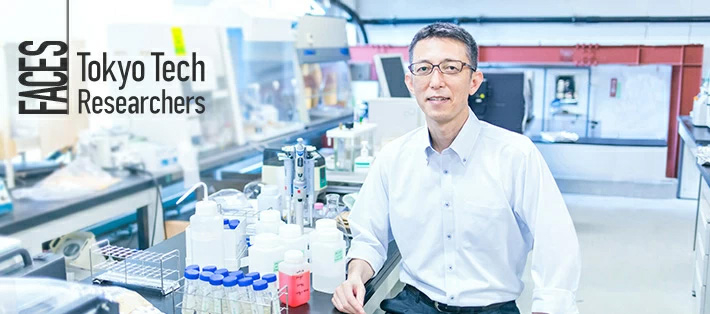
Environmental problems such as global warming, plastic pollution, and ecosystem degradation are widespread and increasingly complex. Many of these problems are related to water. Recently, efforts to improve water usage and the aquatic environment are gaining momentum worldwide.
Under these circumstances, Professor Chihiro Yoshimura (Department of Civil and Environmental Engineering, School of Environment and Society) has been researching the aquatic environment for many years, with a focus on rivers and lakes.
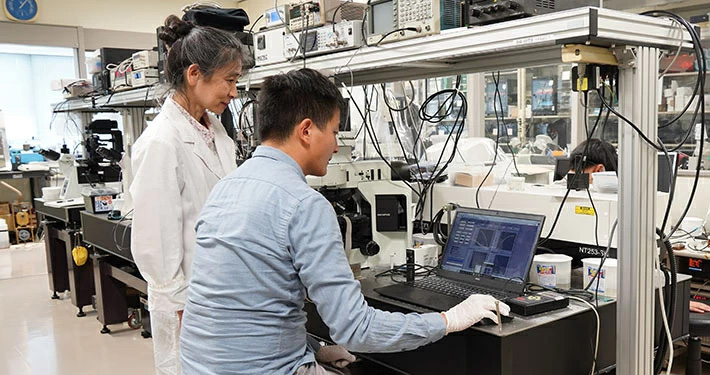
Tokyo Tech's School of Materials and Chemical Technology started a student exchange agreement with the Faculty of Electrical Engineering and Information Technology at RWTH Aachen University (RWTH Aachen) in September 2021 to jointly supervise doctoral students.
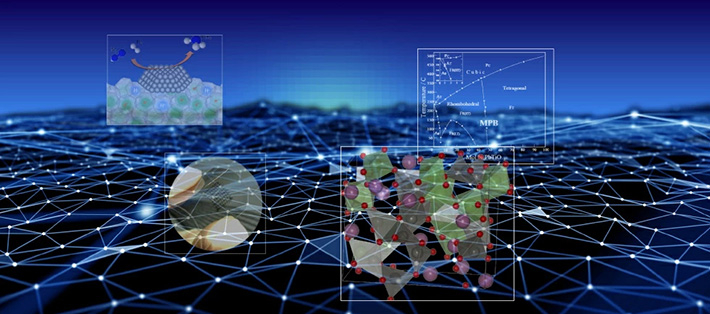
Discovering an unknown material is like cultivating a new world. Improving existing materials alone is not enough to address conflicting needs, such as incremental improvement of performance and stability. The key to innovation is to develop materials that are distinct from existing materials in structure and properties, in other words, materials that are not just a logical extension of the past roadmap.
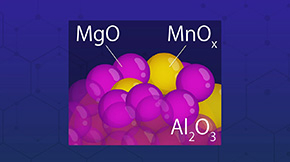
A newly developed manganese (Mn) catalyst facilitates efficient conversion of alcohols into diverse organic compounds without requiring the addition of a base and producing water as the only byproduct, Tokyo Tech researchers find in a new study.
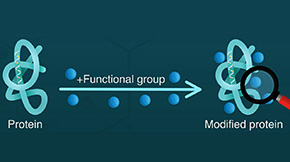
Analyzing the post-translational modification of proteins can help us get a closer look at cellular events. A novel single-molecule detection assay that can do so using electrical measurements has now been developed by researchers at Tokyo Tech. The technique was able to detect the phosphorylation of peptides with 91% specificity and 95% accuracy.
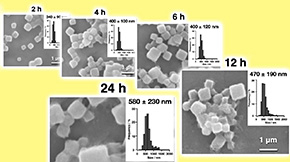
The new cell-free protein crystallization (CFPC) method developed by Tokyo Tech includes direct protein crystallization and is a major headway in the field of structural biology. This technique will enable the analysis of unstable proteins that could not be studied using conventional methods. Analyzing these will increase our knowledge of cellular processes and functions.
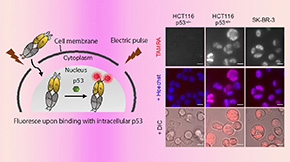
Furthering the visualization of intracellular dynamics for therapeutic applications, a Tokyo Tech research team has now demonstrated precise imaging of endogenous proteins in live cells using an antigen-binding fragment (Fab)-based Quenchbody (Q-body). The Q-body probe shows antigen-dependent response and a switchable (on-off) fluorescent signaling, enabling the visualization and sorting of cells expressing p53, a tumor suppressor biomarker protein.
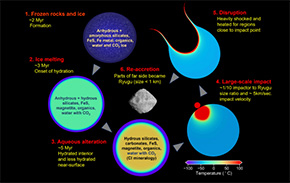
A team of scientists determined the origin and evolution of carbonaceous asteroid Ryugu through sample analysis and computer simulations. The analysis of 17 particles included the third largest sample by the 'Hayabusa2 Initial Analysis Team' consisting of scientists from several universities and research institutes in Japan, including the Earth-Life Science Institute (ELSI) at Tokyo Institute of Technology.
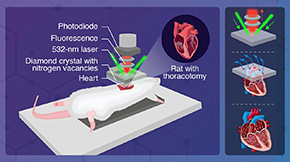
Imperfect current propagation in the heart is at the root of most cardiac diseases. Thanks to a novel magnetocardiography technique developed in the MEXT Q-LEAP Flagship project with researchers from Tokyo Tech and the University of Tokyo, we can now image these currents at millimeter-scale resolutions. Based on a diamond quantum sensor that senses the heart's magnetic fields, the proposed system offers high resolution at room temperature, as demonstrated in experiments with rats. The technique could help deepen our understanding of several cardiac arrythmias.
Tokyo Tech Bulletinは英語で配信を行っていますが、コンテンツは一部を除いてすべて日英両方で掲載しています。